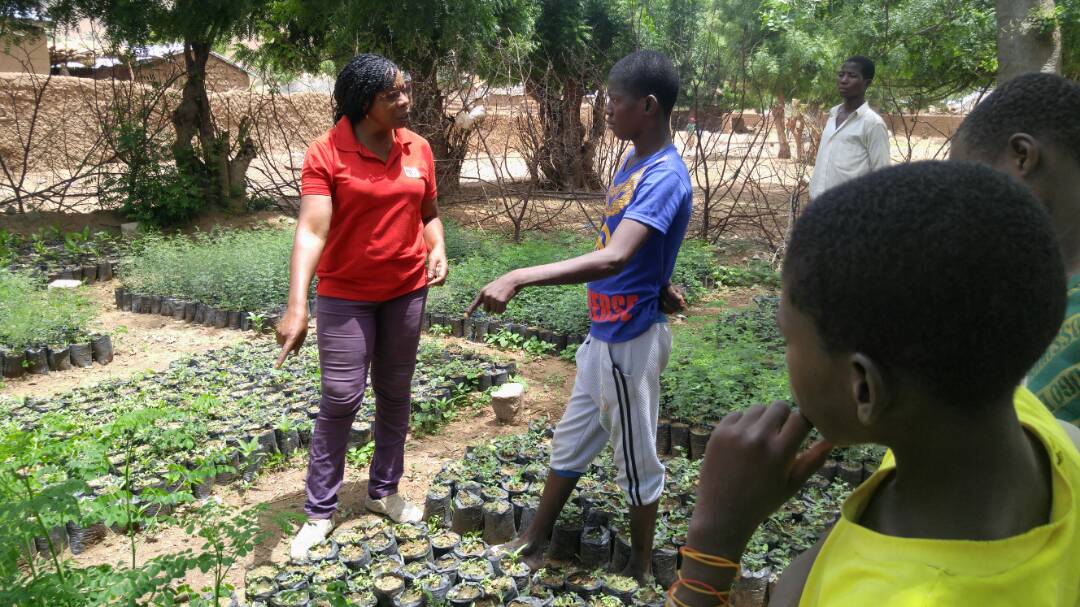

An initial meeting between the traditional and religious authorities of Mogazang was held to gather all useful information and raise awareness among the population. As a next step, a socio-economic study was carried out in order to understand the potential social, economic and environmental impacts and challenges of the restoration initiative. The elaboration of a map by the community members under the guidance of the advisory team allowed the demarcation of a plot of degraded land (10.74 ha) for restoration. The reforestation initiative aimed at providing firewood, fodder, food products and medicinal plants, among others. The government owns the selected plot, under the supervision of the Executive Bureau for Development of the village. However, it is managed ‘by the people, for the people’.
- Always ensure that the population’s concerns are well understood and that the proposed solutions will indeed contribute to solve their problem
- Involve representatives of all member groups of the society (particularly women and children)
- Ensure that there is no conflict of interest or disputed land rights regarding the project site
- Select qualified local people with sufficient education to write short activity reports and foresee their technical and managerial capacity building
- Given the habits and customs of the Muslim community in the area where the initiative is implemented, it was challenging to actively involve women in the discussions.
- Subsequently, we were able to demonstrate the benefits of incorporating the women’s perspective in the discussions and thus achieved their better integration. Indeed, women are those who, on a daily basis, travel long distances in search of firewood justifying the need to involve them in the activities of the initiative.
- To achieve the feeling of ownership among the beneficiaries it is necessary to have administrative and traditional authorities to mobilise them.These authorities, however, tend to emphasize the monetary aspect, which can reduce the achievement of the objectives.